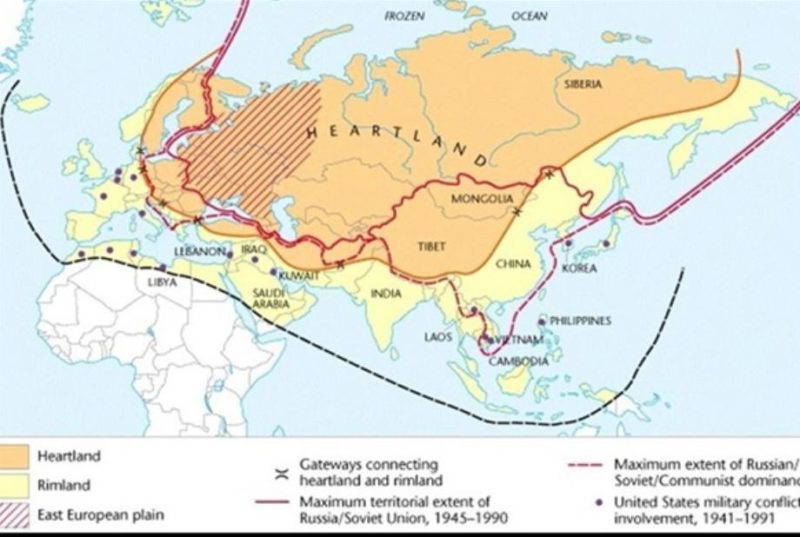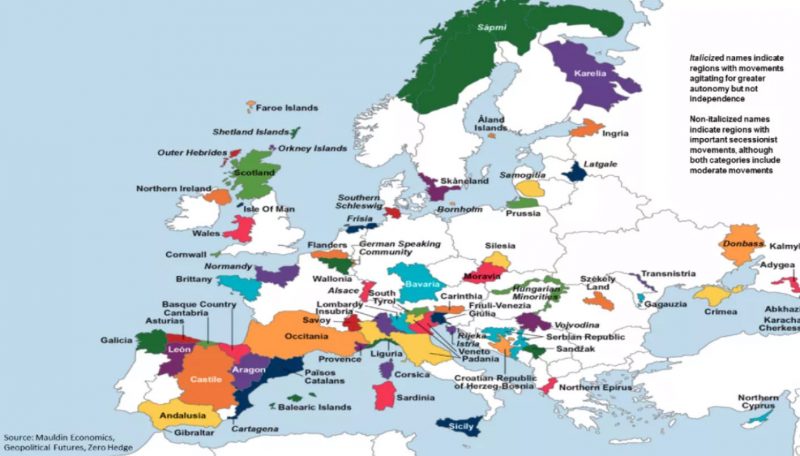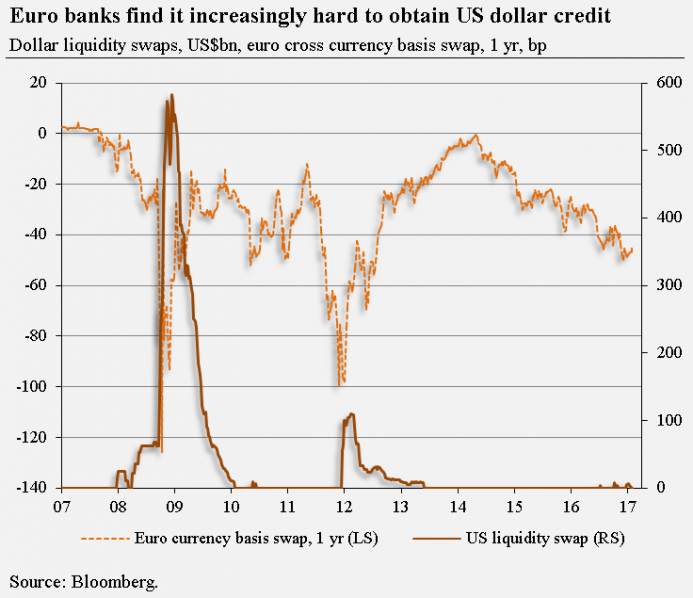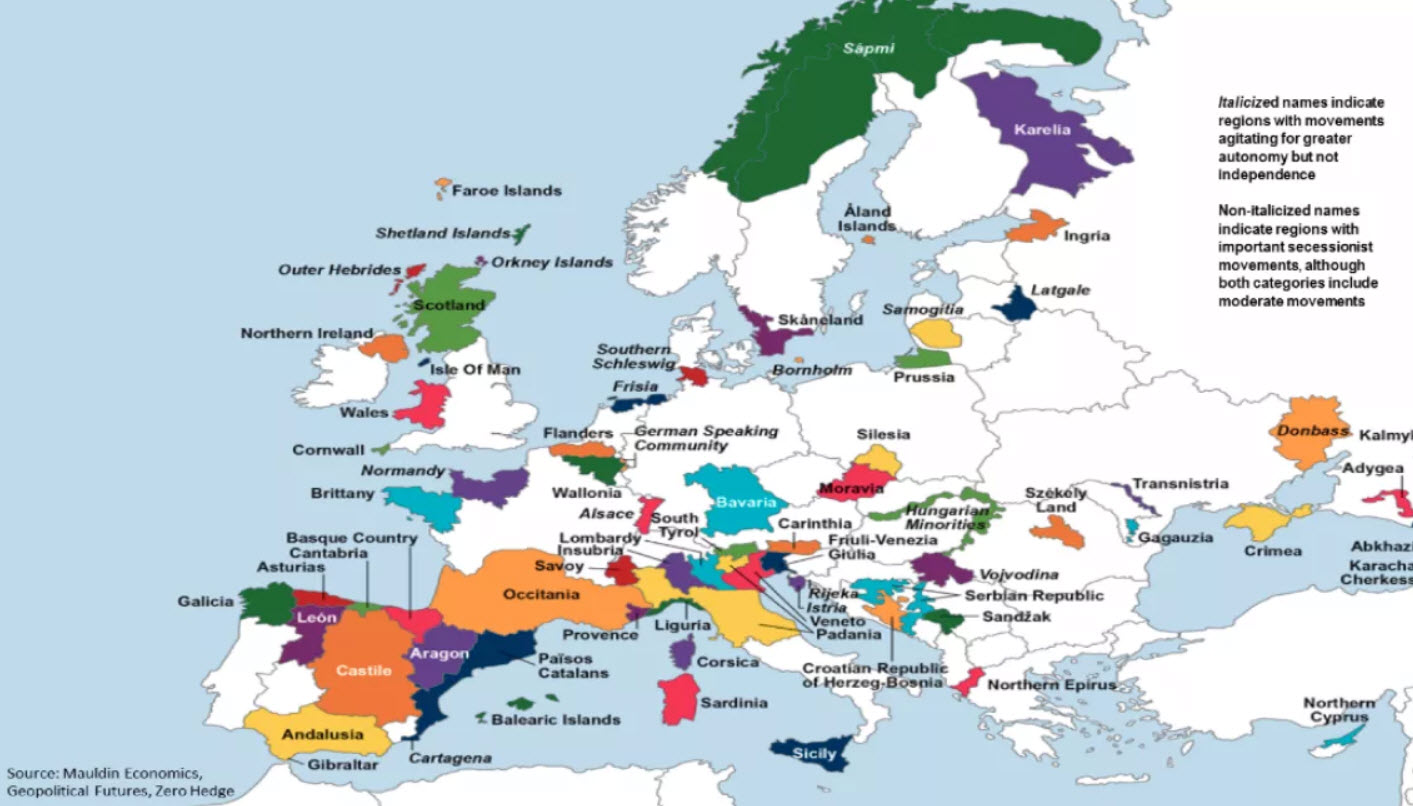Tag Archive: Mises Institute
Inflation as a moral hazard
As I have argued many times in the past, the corruption of money itself and its purposeful devaluation is by far the most important problem facing not just investors and savers, but virtually every single citizen on the face of the planet. Taxation, especially the extremely predatory and aggressive kind that most governments enforce today, might indeed be theft, but inflation is even worse. This is because taxation might be robbery, but at least it...
Read More »
Read More »
The Heartland theory: More relevant than ever?
Share this article
Sir Halford Mackinder’s famous Heartland Theory was first formulated in the early 20th century, but it holds renewed relevance and importance today, especially when analyzed though a critical lens of the current geopolitical system, one that emphasizes individual freedom, limited government intervention, and skepticism of centralized power. Mackinder’s theory posits that control over the “Heartland” — roughly the region of...
Read More »
Read More »
The Heartland theory: More relevant than ever?
Sir Halford Mackinder’s famous Heartland Theory was first formulated in the early 20th century, but it holds renewed relevance and importance today, especially when analyzed though a critical lens of the current geopolitical system, one that emphasizes individual freedom, limited government intervention, and skepticism of centralized power. Mackinder’s theory posits that control over the “Heartland” — roughly the region of Eastern Europe and...
Read More »
Read More »
The permacrisis strategy: the mortal dangers of our “new normal”
Share this article
Over the last years, we have encountered an abundance of alarmist and hysterical “warnings” and admonitions, foretelling the impending doom of the world as we know it. Market corrections have served as an excuse for scaremongers to cultivate panic over a total systemic collapse. Surprising political shifts, like unexpected electoral results, have been coopted to support extreme scenarios, predicting the fall of the current world...
Read More »
Read More »
Economic Freedom: The Cornerstone of Western Civilization
Share this article
Part I of II, by Claudio Grass
Western civilization – with all its scientific and technological progress, artistic prowess, philosophical and sociopolitical evolution, moral values, ethical principles and rich culture – took millennia to reach its famed “Enlightenment” point. It has been a rollercoaster, violently swinging from highs to lows and from darkness to light, from autocracy, tyranny and despotism to humanism and...
Read More »
Read More »
Modern Monetary Theory: Reality check
I’ve written extensively over the past years about the rise of Modern Monetary Theory (MMT) and all the terrible dangers it entailed from its very birth, not just for our economies, but for our societies too. Although it captured media interest and monopolized a lot of “expert” debates at the time, one wouldn’t be blamed for thinking it was merely a “flash in the pan”, just another crazy idea that the establishment entertained for a while to...
Read More »
Read More »
“Markets and civil society are win-win institutions, government and politics are zero-sum.”
Division, friction and polarization have been on the rise in the West for at least a decade, but the escalation we saw during the “covid years” was especially worrying. Over the last year, this “worry” has become a truly pressing concern, even a real emergency one might argue, as inflationary pressures and an actual war were added to the mix of political and social tensions.
Read More »
Read More »
Unless the US stops printing money, the dollar will collapse
Claudio Grass (CG): This crisis has shaken a lot of industries and core functions of the global economy and international trade. How do you assess its impact on the most important part of the machine, the banking system? Do you see risks there that investors should be worrying about?
Read More »
Read More »
“Unless the US stops printing money, the dollar will collapse.”
We’re less than two weeks away from the US election, and yet this sense of utter confusion, bitter political conflict, and economic uncertainty that has been ominously hovering over the nation, as well as the rest of the world, doesn’t seem to have subsided.
Read More »
Read More »
What Gives Cryptocurrencies Their Value
The value of cryptocurrencies like bitcoin, just like any other kind of money, comes fundamentally from what you can do with it. As a follow up to What Backs Bitcoin, I want to dig into that value. The idea, which comes from Austrian economist Carl Menger, is that just as a shovel’s value comes from its ability to dig, a currency’s value comes from its ability to help you do two things: transactions and savings.
Read More »
Read More »
If American Federalism Were Like Swiss Federalism, There Would Be 1,300 States
In a recent interview with Mises Weekends, Claudio Grass examined some of the advantages of the Swiss political system, and how highly decentralized politics can bring with it great economic prosperity, more political stability, and a greater respect for property rights. Since the Swiss political system of federalism is itself partially inspired by 19th-century American federalism, the average American can usually imagine in broad terms what the...
Read More »
Read More »
When Health Insurance Works: A Look Inside Switzerland’s Healthcare System
The enigmatic independence of Switzerland is perhaps best demonstrated in the fact that its healthcare system manages to satisfy both free marketers and the statist-socialists in the country. It is a giant social safety net woven by individual responsibility and self-made wealth. Health insurance is almost entirely consumer-based, though there are strict cantonal regulations and some governing federal laws.
Read More »
Read More »
Why Small States Are Better
Andreas Marquart and Philipp Bagus (see their mises.org author pages here and here) were recently interviewed about their new book by the Austrian Economics Center. Unfortunately for English-language readers, the book is only available in German. Nevertheless, the interview offers some valuable insights.
Read More »
Read More »
Can Switzerland Survive Today’s Assault On Cash And Sound Money?
“Switzerland will have the last word,” wrote Victor Hugo in the late 19th century. “It possesses one of the most perfect forms of government in the world.” A contemporary of his, Frederick Kuenzli, a scholar of the Swiss Army, boasted: “No purer type of Republican ideals, no more fixed and devoted adherence to those ideals can be found in all the world than in Switzerland.”
Read More »
Read More »
Don’t Confuse Immigration With Naturalization
As the immigration debate goes on, many commentators continue to sloppily ignore the difference between the concept of naturalization and the phenomenon of immigration. While the two are certainly related, they are also certainly not the same thing. Recognizing this distinction can help us to see the very real differences between naturalization, which is a matter of political privilege, and immigration, which simply results from the exercise of...
Read More »
Read More »
What Will Trump Do About The Central-Bank Cartel?
The US is by far the biggest economy in the world. Its financial markets — be it equity, bonds or derivatives markets — are the largest and most liquid. The Greenback is the most important transaction currency. Many currencies in the world — be it the euro, the Chinese renminbi, the British pound or the Swiss franc — have actually been built upon the US dollar.
Read More »
Read More »
When It Comes To Household Income, Sweden & Germany Rank With Kentucky
Last year, I posted an article titled "If Sweden and Germany Became US States, They Would be Among the Poorest States" which, produced a sizable and heated debate, including that found in the comments below this article at The Washington Post. The reason for the controversy, of course, is that it has nearly reached the point of dogma with many leftists that European countries enjoy higher standards of living thanks to more government regulation and...
Read More »
Read More »
Hans-Hermann Hoppe: “Put Your Hope In Radical Decentralization”
All major political parties in Western Europe, regardless of their different names and party programs, are nowadays committed to the same fundamental idea of democratic socialism. They use democratic elections to legitimize the taxing of productive people for the benefit of unproductive people. They tax people, who have earned their income and accumulated their wealth by producing goods or services purchased voluntarily by consumers (and of course...
Read More »
Read More »






































